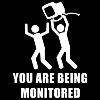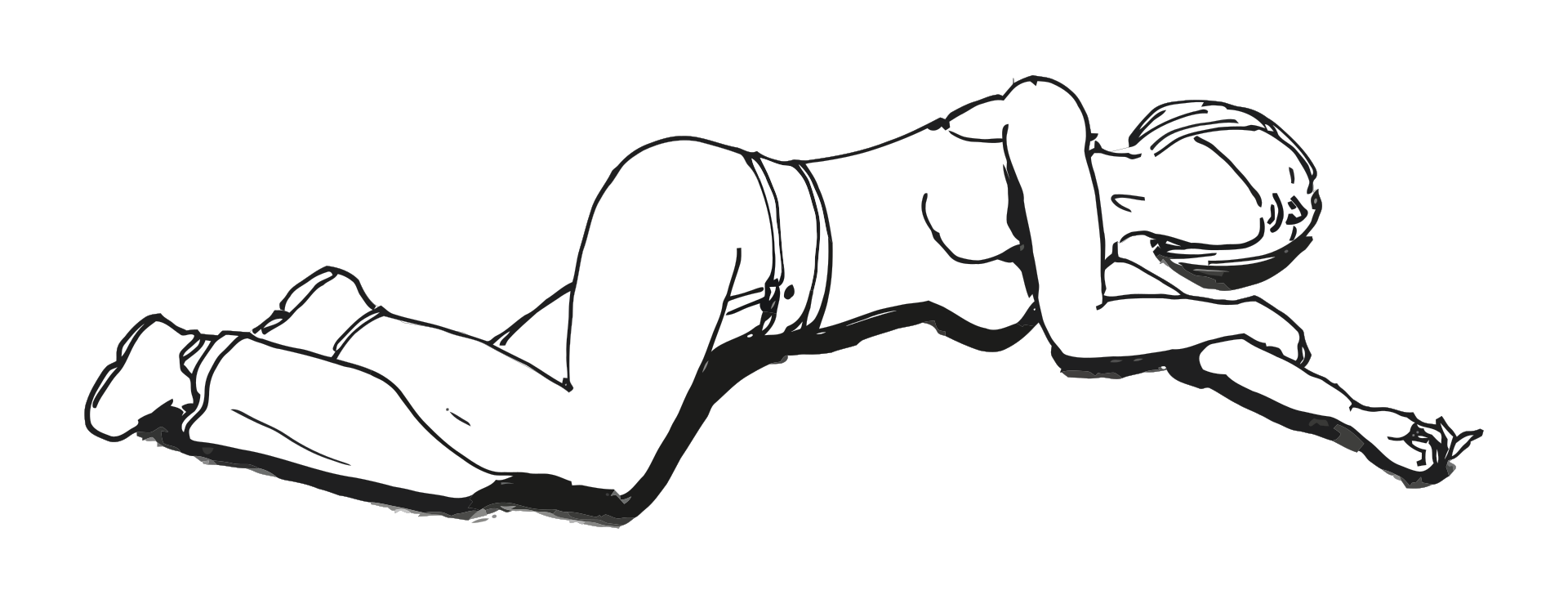LebGeeks
You are not logged in.
- Topics: Active • Unanswered
Pages: 1
#1 July 10 2019
- Johnaudi
- Member

Medical Emergencies
Hello Geeks,
After an incident with a loved one (thankfully all went eventually well), I've realized how important it was to keep in mind simple rules for medical emergencies. I'd like to request from the geeks with experience to share some easy, small tips to memorize in case of a particular medical emergency in this thread.
Here's mine, for example:
In case your friend gets a bit too drunk and starts puking, then eventually passes out, make sure he sleeps with his head tilted to the side! This is in case he wants to puke again; he won't suffocate while asleep with his barf.
Keep it simple and easy to memorize!
Thanks for reading, that would hopefully help us geeks in such emergencies.
![]()
#2 July 10 2019
- Elied
- Member

Re: Medical Emergencies
Hello Geeks,
Here's mine, for example:
In case your friend gets a bit too drunk and starts puking, then eventually passes out, make sure he sleeps with his head tilted to the side! This is in case he wants to puke again; he won't suffocate while asleep with his barf.
This doesn't apply to only intoxicated people but most anyone who passes out. It is advised to lay them on their side so they do not choke on their tongue, "yebla3 lseno" as they say in Arabic. So this advice applies to anyone passed out from a sun stroke, alcohol, exhaustion or any other cause.
Source: some first aid training i got a number of years ago so best practices might have changed
Also another tip, to help someone regain consciousness, call them by their name or the name they're used to be called in if they have a widely used nickname. It won't wake them up from a coma but helps speed up the process in some situations i.e. sun stroke.
![]()
#3 July 10 2019
- Joe
- Member

Re: Medical Emergencies

All forms of the recovery position share basic principles. The mouth is downward so that fluid can drain from the patient's airway; the chin is well up to keep the epiglottis opened. Arms and legs are locked to stabilize the position of the patient
From wikipedia
![]()
#4 July 10 2019
- rolf
- Member

Re: Medical Emergencies
You can't really list all the possibilities of all that can go wrong.
However some common sense and knowing in advance who you can call for help and when to call them can help!
Also most bad things happen when you are not expecting them and not paying attention so I am tempted to say; try to stay alert and aware.
The recovery position is definitely a good thing to know, as anyone who is fan of Jimi Hendrix probably already knows.
Last edited by rolf (July 10 2019)
![]()
#5 July 10 2019
- eWizzard
- Member
Re: Medical Emergencies
It is advised to lay them on their side so they do not choke on their tongue, "yebla3 lseno" as they say in Arabic.
Ah yes, one of the many ancient and persistent Lebanese myths, along with "saf2it hawa" and "teshwibe".
Also another tip, to help someone regain consciousness, call them by their name or the name they're used to be called in if they have a widely used nickname. It won't wake them up from a coma but helps speed up the process in some situations i.e. sun stroke.
No, it won't "speed up the process". You talk to them in a loud voice only as an initial way to check if they're conscious and responsive. If not, you should quickly check their breathing and heartbeat, then call 140 if you notice anything wrong.
I always carry this in my bag wherever I go, and I think most people should too, whenever possible. I also think that children in Lebanon should be taught basic emergency response and first aid in schools, and every household should have a general health and safety booklet.
![]()
#6 July 10 2019
- Joe
- Member

Re: Medical Emergencies
Ah yes, one of the many ancient and persistent Lebanese myths, along with "saf2it hawa"
I found out recently that this myth also exists in Italy, it's called a "colpo d'aria" and it's devastating.
source: my wife is Italian.
![]()
#7 July 10 2019
- Jerome
- Member

Re: Medical Emergencies
If you feel lightheaded + nausea, try drinking mixed water and sugar.
Happens to me when I should have had breakfast but I didn't.
![]()
#8 July 11 2019
- xazbrat
- Member
Re: Medical Emergencies
If you feel lightheaded + nausea, try drinking mixed water and sugar.
Happens to me when I should have had breakfast but I didn't.
Careful---it could also mean you are getting a heart attack (not you personally, someone). My father who is also a diabetic thought his blood sugar was going down so he had some water and bonbons. It didn't seem to help so we took him down the ER and it turns out he had a heart attack. Luckily, we caught it in time and after a quadruple bypass, he was home a couple of weeks later.
It is a good thing to be a good Samaritan, but don't try to be a doctor after reading a few web pages or watching a few videos on youtube. Some places offer classes in basic first aid--if you really want to help, take some classes and bring a few people along with you.
![]()
#9 July 12 2019
- NuclearVision
- Member

Re: Medical Emergencies
Ah yes, one of the many ancient and persistent Lebanese myths, along with "saf2it hawa"
I found out recently that this myth also exists in Italy, it's called a "colpo d'aria" and it's devastating.
source: my wife is Italian.
What if i tell you these are not myths?
https://www.ncbi.nlm.nih.gov/m/pubmed/30205396/
https://www.ncbi.nlm.nih.gov/books/NBK499833/
https://www.ncbi.nlm.nih.gov/pmc/articles/PMC5923808/
Not In books, but not myths either
Last edited by NuclearVision (July 12 2019)
![]()
#10 July 13 2019
- eWizzard
- Member
Re: Medical Emergencies
I'm willing to bet that at least 90% of the time, the people who complain about the AC "hitting" them have neither Bell's palsy nor Raynaud disease. GI infection seems a bit more likely, but not because of cold temperatures (the paper's findings also seem to agree with this). The point is that wind and cold have nothing to do with the all too common "saf2it hawa". What the expression really means is "I have no idea about what's happening so I'll just blame the wind for no apparent reason like everyone else told me to".
![]()
#11 July 13 2019
- xazbrat
- Member
Re: Medical Emergencies
I'm willing to bet that at least 90% of the time, the people who complain about the AC "hitting" them have neither Bell's palsy nor Raynaud disease. GI infection seems a bit more likely, but not because of cold temperatures (the paper's findings also seem to agree with this). The point is that wind and cold have nothing to do with the all too common "saf2it hawa". What the expression really means is "I have no idea about what's happening so I'll just blame the wind for no apparent reason like everyone else told me to".
Agreed 100%. Some of the rationalizations I hear are unbelievable. My aunt (gbhs) was an avid believer in "saf2it hawa".. One time I asked a bit more about it. If you are on beach and the wind is blowing, do you consider that "saf2it hawa".? She said no. I then followed up with, if you fan running while wind is blowing while you are on the beach, is that"saf2it hawa".? She said yes. After trying to counter her argument, I simply shrugged my shoulders and decided it wasn't worth my time.
I had someone try to explain that is was due to the nerves may get hurt, another said that the body reacts badly to " fan air" because it isn't natural (he learned this too), and another rationalized it by saying that fans or AC's shouldn't be running in the gym because it will affect your muscles. After 1) asking for actual medical evidence for this (got none except some 3rd person information from his uncle, a doctor), 2) almost laughing in the guy's face (I almost felt bad), and showing the guy pictures and videos of AC's and fans running in gyms.
I do think that people need a reason why something happened and this has been around forever--someone wakes up with a sore back "saf2it hawa", stomach hurts, "saf2it hawa"., throwing up "saf2it hawa". It has always been a part of man to try explain everything around him.
![]()
#12 July 13 2019
- NuclearVision
- Member

Re: Medical Emergencies
I'm willing to bet that at least 90% of the time, the people who complain about the AC "hitting" them have neither Bell's palsy nor Raynaud disease. GI infection seems a bit more likely, but not because of cold temperatures (the paper's findings also seem to agree with this). The point is that wind and cold have nothing to do with the all too common "saf2it hawa". What the expression really means is "I have no idea about what's happening so I'll just blame the wind for no apparent reason like everyone else told me to".
I agree, it's very common to blame the wind for no apparent reason.
But it seems rational to protect one's self from cold.
![]()
#13 July 13 2019
- eWizzard
- Member
Re: Medical Emergencies
I do think that people need a reason why something happened and this has been around forever--someone wakes up with a sore back "saf2it hawa", stomach hurts, "saf2it hawa"., throwing up "saf2it hawa".
There are obviously many different reasons for why these things happen. From personal experience, I found that bad sleeping position is the main culprit for waking up with a sore neck or back. Once I became aware of that and changed my sleeping habits, the recurrence rate dropped for me.
Another thing about ACs is that badly maintained ones can make great homes for mold (عفونة). So if you do get sick from standing around a particular AC, chances are it's because it was blowing mold and mold spores into your lungs.
But it seems rational to protect one's self from cold.
Sure, but I find the effect of cold temperatures on the body to be exaggerated under normal conditions. The average human body is good enough at thermoregulating that walking into and out of a cooled building during a hot summer day doesn't do much to most people, in Lebanon or elsewhere. Same thing as jumping into a cold swimming pool in the morning.
![]()
#14 July 13 2019
- rolf
- Member

Re: Medical Emergencies
Once when I was staying in Germany, I took a long walk in the snow (1 hour maybe). When I came home I had a stiff neck (torticolis) for days.
So the cold can have an effect for sure. I have heard people complain that they are affected by cold/hot/cold changes (strong AC), especially people who are not used to this.
Extreme changes in temperature mess with the blood flow, which can affect digestion and other things. So generally it is better to avoid these.
But it is not something I would be too worried about.
The situation where I would be extra careful is when I am jumping in very cold water, for example.
Last edited by rolf (July 13 2019)
![]()
#15 July 13 2019
- xazbrat
- Member
Re: Medical Emergencies
Once when I was staying in Germany, I took a long walk in the snow (1 hour maybe). When I came home I had a stiff neck (torticolis) for days.
So the cold can have an effect for sure. I have heard people complain that they are affected by cold/hot/cold changes (strong AC), especially people who are not used to this.
Extreme changes in temperature mess with the blood flow, which can affect digestion and other things. So generally it is better to avoid these.
But it is not something I would be too worried about.
The situation where I would be extra careful is when I am jumping in very cold water, for example.
I think it might be true to some extent, but much of it imo is psychosomatic. One of my aunt's and her kids will get sick when they eat or drink anything cold. So, even in the middle of summer, any watermelon served at their household is at room temperature. I have never heard of a medical condition that can make people sick from eating or drinking cold items, so what else could it be? As for walking in the snow, you have to walk a little differently because of the depth and structure of snow--you could get the same symptoms walking in a sandy desert or a boggy area If your muscles and body aren't attuned to the activity, you may be experience soreness or other discomfort.
Many people in this country are told that AC's, fans and whatever else are bad for them somehow, and they start to believe it and then pass it on as fact. And going for 35 outside to 22 to an air conditioned place isn't really considered an extreme temperature change. At the same time, people won't hesitate to turn on heaters in the winter and don't complain about the change as much. Go figure.
![]()
#16 July 13 2019
- rolf
- Member

Re: Medical Emergencies
As for walking in the snow, you have to walk a little differently because of the depth and structure of snow--you could get the same symptoms walking in a sandy desert or a boggy area If your muscles and body aren't attuned to the activity, you may be experience soreness or other discomfort.
I can walk for hours without a problem. I was walking on a road with a thin, soft layer of snow.
My soreness was in my neck. It was cold - probably 0 or less - pretty sure it was due to my relatively exposed neck muscles being affected by the cold.
![]()
#17 July 14 2019
- Johnaudi
- Member

Re: Medical Emergencies
Thanks everyone for your replies, they're very helpful, but I'd still like to remind this idea:
Keep it simple and easy to memorize!
![]()
Pages: 1